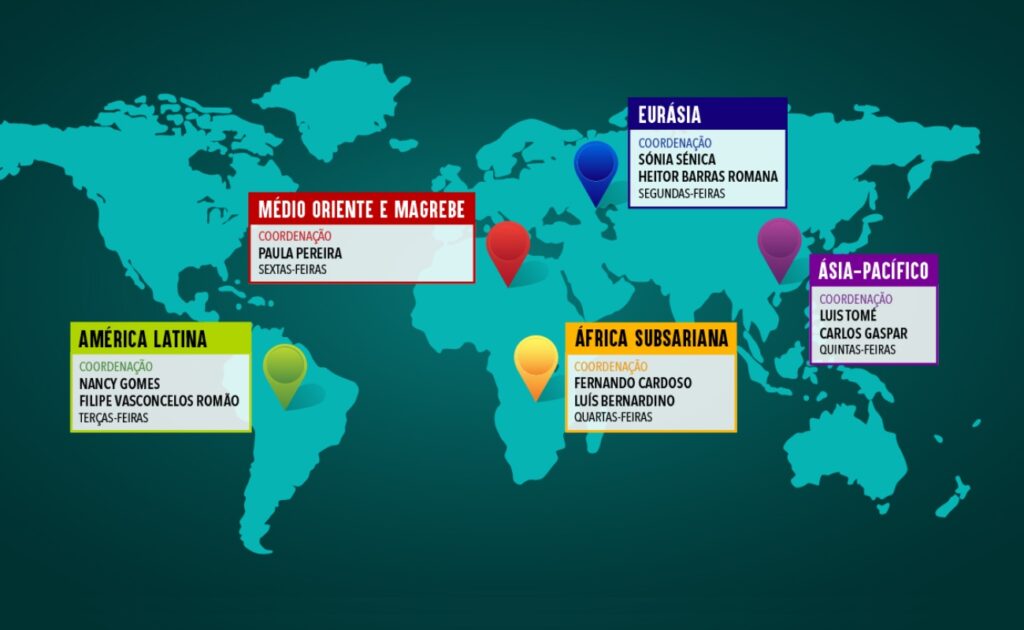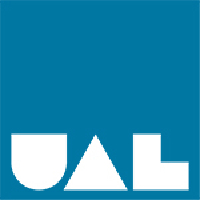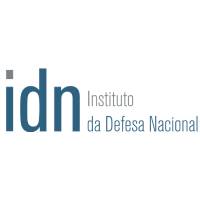Specialization Course in Advanced Regional Studies
Scientific Area

Although there is a strong tradition at the Autonomous University of Lisbon (UAL) – Department of International Relations – and also at the National Defence Institute (IDN), regional studies have little development in Portugal.
Thus, UAL and IDN are jointly promoting a series of five Advanced Courses in Regional Studies for anyone interested, including non-graduates, in learning about or deepening their knowledge of the following regions:
Eurasia ++ Latin America ++ Sub-Saharan Africa ++ Asia-Pacific ++ Middle East and Maghreb.
The courses are entirely autonomous, and candidates may attend only one, several, or all of them.
The training takes place at UAL, from March to June 2025, on a weekday for 3.5 hours, between 9:00 AM and 1:00 PM or between 6:30 PM and 10:30 PM.
The IDN also hosts other open classes, and students can participate in thematic conferences organized by the IDN and/or UAL.
- Students from various cycles of Higher Education, namely in the areas of International Relations, Political Science, History, Sociology, Geography, Economics, Communication Sciences and African Studies.
- Members of the Armed Forces and Security Forces and Services
- Public Administration staff, namely from the Ministry of Foreign Affairs, the Ministry of National Defense, the Ministry of Internal Administration and the Ministry of Economy
- Senior officials and technicians of Municipal Chambers
- Companies focused on internationalization, consulting, and risk analysis.
- Journalists.
The Department of International Relations at the Autonomous University of Lisbon (UAL) and the National Defense Institute (IDN) are jointly promoting the Advanced Studies Course on Eurasia.
Bringing together a renowned group of experts, this course aims to:
- To provide information and reflection on the historical evolution and current dynamics in the vast area stretching from Eastern Europe to Central Asia, particularly in the Post-Soviet Space.
- To understand the potential and risk factors in Eurasia and to characterize the political, economic, and socio-cultural situation of the peoples and countries of the region, as well as the interests and strategies of the most relevant resident actors, with particular emphasis on Russia.
- To promote in-depth analysis of the factors that influence competitive and cooperative behaviors and interactions in Eurasia, particularly involving Russia, the EU, the USA, NATO, Turkey, and China.
RESPONSIBLE PROFESSORS: Professor Heitor Barras Romana and Professor Sónia Sénica
INVITED SPEAKERS
Andrea Cartney (Sapienza di Roma)
André Matos (Universidade Aberta)
Carlos Gaspar (UAL)
Daniel Pommier Vincelli (Sapienza di Roma)
Gabriele Natalizia (Sapienza di Roma)
Huseyin Bagci (Middle East Technical UniversityMETU e Presidente do Turkish Foreign Policy Institute)
Licínia Simão (FEUC)
Luís Tomé (UAL)
Marcos Farias Ferreira (ISCSP)
Maria Raquel Freire (FEUC)
Patrícia Daenhardt (IDN)
Sandra Fernandes (CICP, UMinho)
CALENDAR: March 10 to June 16, 2025
DURATION: 50 hours / 6 ECTS
SCHEDULE: Mondays from 9:00 AM to 1:00 PM (daytime) or from 6:30 PM to 10:30 PM (after-work hours)
LOCATION: The course is taught in person at the facilities of the Autonomous University of Lisbon (UAL). Students may participate in thematic conferences, either in person or online via Zoom, organized by UAL and/or IDN.
CURRICULUM PLAN
- Delineation and conceptualization of Eurasia and its sub-regions: Baltic, Eastern Europe, Black Sea Basin, Caucasus, Caspian Basin, and Central Asia.
- Historical Evolution: Russia and the Russian Empire; Eurasia and World War I; the Soviet Union and World War II; Eurasia during the Cold War and the collapse of the USSR.
- Characterization of Eurasia today: political regimes; economic situation; energy resources, infrastructure and routes; security agenda and factors of instability; the “frozen conflicts”.
- Russian Federation: geography and demography; political leadership and “Putinism”; economic dimension and energy; military power and geostrategy; foreign and security policy.
- Other actors and interactions in Eurasia: regional interests and policies of Turkey, the EU, the US, NATO, and China; non-state actors; regional organizations; vectors of competition and cooperation in Eurasia.
The courses are taught in person at the Autonomous University of Lisbon (UAL). Participants have access to thematic conferences organized by IDN and/or UAL.
The Department of International Relations at the Autonomous University of Lisbon (UAL), the National Defense Institute (IDN), and the Organization of Ibero-American States for Education, Science and Culture (OEI) are jointly promoting the Advanced Course in Studies on LATIN AMERICA.
Bringing together a renowned group of experts, this course aims to:
- To know and understand the specificities of Latin America: Historical evolution, regional borders, states and subsystems.
- Studying the Inter-American System: concept; origins; process of institutionalization.
- To study and understand regional integration processes.
- To identify, study, and understand the conflict hotspots in the region, the disputes between states, and crime.
- To promote in-depth analysis of Latin American International Relations, with emphasis on Latin America-USA, Latin America-European Union, Latin America-China, Latin America-Africa, and Latin America-Portugal relations.
RESPONSIBLE PROFESSORS: Professor Dr. Nancy Gomes and Professor Dr. Filipe Vasconcelos Romão
INVITED SPEAKERS
Andrés Malamud (Universidade de Lisboa)
Arturo Oropeza García (Universidad Nacional Autónoma de México)
Beatriz Padilla (University of South Florida)
Brigida Brito (Universidade Autónoma de Lisboa)
Carmen Fonseca (Universidade Nova de Lisboa)
Daniel Cardoso (Universidade Autónoma de Lisboa)
Eugénio Costa Almeida (Instituto Universitário de Lisboa)
Martin Lienhard (Universidade de Zurich)
Raquel Patrício (Universidade de Lisboa)
Cátia Miriam Costa (ISCTE-Instituto Universitário de Lisboa)
José Freire Nogueira (Instituto de Defesa Nacional)
Ricardo Raposo Lopes (Instituto de Estudos Políticos)
Roberta Stumpf (Universidade Autónoma de Lisboa)
Thiago Gehre Galvão (Universidade de Brasília)
Andrea Imaginario (Universidade Autónoma de Lisboa)
João V. Sousa (Centro de Estudos Internacionais)
Luciano Stremel (Instituto de Desenvolvimento Económico e Social de Fronteiras)
Marcelo Palermo (ISCTE-Instituto Universitário de Lisboa)
Mariano Aguirre (Red Latinoamericana de Seguridad Inclusiva y Sostenible – Friedrich Ebert Foundation)
CALENDAR: March 11 to June 17, 2025
DURATION: 50 hours / 6 ECTS
SCHEDULE: Tuesdays from 9:00 AM to 1:00 PM (daytime) or from 6:30 PM to 10:30 PM (after-work hours)
LOCATION: The course is taught in person at the facilities of the Autonomous University of Lisbon (UAL). Students may participate in thematic conferences, either in person or online via Zoom, organized as part of the activities of the OEI-UAL Chair of Ibero-American Studies.
CURRICULUM PLAN
- The American Continent. The pre-Columbian era. The European impact. Iberian Powers vs. “New” Powers.
- The Latin American Region. Regional borders and regional states. The various subsystems.
- Historical and political evolution of the Latin American regional system. From colonies to independent states. European dominance. US hegemony. The emergence of new extra-regional actors. Pluralism and “political autonomy” that currently characterize the region.
- The Inter-American System. Concept. Origins. Institutionalization process: advances and setbacks.
- Regional integration processes. ECLAC as an alternative to Pan-Americanism. The hemispheric alternative of the FTAA. From the commercial Mercosur to the political UNASUR. The ideological proposal of ALBA. CELAC and Bolívar’s dream. The Alliance for the Pacific and the necessary pragmatism. The Forum for the Progress of South America (Prosul).
- Key conflict zones in the region. The problem of border definition and control. The problem of drug trafficking and arms trafficking. The arms race. The phenomenon of migration.
- International Relations of Latin America in the 21st Century. Latin America and the USA. Latin America and the European Union. Latin America and China, Latin America and Portugal.
Students will be able to participate in thematic conferences, either in person or online via Zoom, organized by UAL and/or IDN and OEI.
Para este ano letivo, e pela quarta vez consecutiva, a Organização de Estados Ibero-americanos para a Educação, a Ciência e a Cultura (OEI) concede quatro bolsas destinadas ao pagamento de propinas. Os candidatos interessados deverão completar o formulário de candidatura a bolsa disponível, até dia 7 de Março, em https://observare.autonoma.pt/catedra-estudos-americanos/.
Candidates will be selected based on their academic merit. The jury for evaluating applications submitted for these scholarships will consist of the course coordinator, Professor Nancy Gomes, and the director of the OEI in Portugal, Dr. Ana Paula Laborinho.
The Department of International Relations at the Autonomous University of Lisbon (UAL) and the National Defense Institute (IDN) are jointly promoting the Advanced Course in Studies on Sub-Saharan Africa.
Bringing together a renowned group of experts, this course aims to:
- Understanding the theoretical and conceptual specificities in research on political dynamics in Sub-Saharan Africa.
- To gain a historical understanding of current political, economic, and sociocultural dynamics.
- To gain an understanding of the actions of key African and international actors on the continent.
- Understanding political dynamics at the sub-regional level (Western, Eastern, Central and Southern Sub-Saharan Africa).
RESPONSIBLE PROFESSORS: Professor Fernando Jorge Cardoso and Professor Luís Bernardino
INVITED SPEAKERS
Pedro Seabra (IDN and CEI-ISCTE)
CALENDAR: March 5 to June 18, 2025
SCHEDULE: Wednesdays from 9:00 AM to 1:00 PM (daytime) or from 6:30 PM to 10:30 PM (after-work hours)
LOCATION: The course is taught in person, however some sessions may be held online. The in-person sessions will be at the Autonomous University of Lisbon (UAL). Students may participate in thematic conferences organized by UAL.
CURRICULUM PLAN
-
From pre-colonial Africa to the impact of Arab and European expansion.
-
Africa during the era of European neo-imperialism: from partition to the construction of colonial states.
-
Transformations imposed by colonial growth and governance models.
-
On (in)dependencies and the construction of neocolonialism
-
Development and governance models in Africa during the Cold War period.
-
Energy crisis and technological changes of the 1970s: deindustrialization and pauperization
-
From the end of the Cold War to the transition of liberal democracies and neoliberalism in the 1990s.
-
Return to growth at the dawn of the 21st century: renewed dependence on raw materials.
-
The expansion of new wars and radicalism in the second decade of the 21st century.
-
The transition from the second to the third decade of the 21st century: problems and challenges in perspective.
- Current Dilemmas of Security and Defense in Africa
-
The difficult compromise between “African unity,” diverse interests, and geopolitics?
-
From “emerging economies” type industrialization to models of regional openness and integration.
-
Demographic issues and environmental challenges
The courses are taught in person at the Autonomous University of Lisbon (UAL). Participants have access to thematic conferences organized by IDN and/or UAL.
The Department of International Relations at the Autonomous University of Lisbon (UAL) and the National Defense Institute (IDN) are jointly promoting the Advanced Course in Studies on the Asia-Pacific region.
Bringing together a renowned group of experts, this course aims to:
- To provide information and reflection on the historical evolution and current dynamics in the vast Asia-Pacific region.
- To understand the potential and risk factors in the Asia-Pacific region and to characterize the political, economic, and socio-cultural situation of the peoples and countries of the region, as well as the interests and strategies of the most relevant resident actors, with particular emphasis on China, India, Japan, and ASEAN.
- To promote in-depth analysis of the factors that influence competitive and cooperative behaviors and interactions in the region, as well as the policies and relations of the EU, the US, and Russia towards the Asia-Pacific region.
RESPONSIBLE PROFESSORS: Professor Luis Tomé and Professor Carlos Gaspar
INVITED SPEAKERS
Álvaro Rosa, ISCTE
Cátia Miriam Costa, ISCTE
Constantino Xavier, Centre for Social and Economic Progress (CSEP) – India
Daniel Cardoso, UAL
Francisco Leandro, University of Macau – China
Mark Beeson, University of Technology – Sydney, Australia
Nuno Canas Mendes, ISCSP
Qamar Cheema, National University of Modern Languages/NUML, Pakistan
Richard Higgot, Brussels School of Governance
Robert Sutter, George Washington University – United States
Rui Feijó, Institute of Contemporary History – UNova
Tiago Vasconcelos, ISCSP and OBSERVARE – UAL
Tosh Minohara, Research Institute for Indo-Pacific Affairs (RIIPA) – Japan
Others to be confirmed
CALENDAR: March 6 to June 12, 2025
DURATION: 50 hours / 6 ECTS
SCHEDULE: Thursdays from 9:00 AM to 1:00 PM (daytime) or from 6:30 PM to 10:30 PM (after-work hours)
LOCATION: The course is taught in person at the facilities of the Autonomous University of Lisbon (UAL). Students may participate in thematic conferences, either in person or online via Zoom, organized by UAL and/or IDN.
Participants in this course have access to the 15-lecture series “Europe and Asia: Constructions and Interactions” sponsored by the Eurasia Foundation (from Asia-Japan).
CURRICULUM PLAN
- Delineation and conceptualization of the Asia-Pacific region and its sub-regions: South Asia, Northeast Asia, Southeast Asia, and Oceania.
- Historical Legacy: the expansion of Confucianism, Hinduism, and Islam; from the Indian and Chinese empires to the colonial era and Japanese expansion; the Pacific War; decolonization and the Cold War in the Asia-Pacific region.
- Characterization of the Asia-Pacific region today: political regimes; economic situation; security agenda and factors of instability; multilateralism and regionalism.
- Key Players: Interests, Potential, and Policies: China, Japan, ASEAN, North Korea, South Korea, India, Pakistan, and Australia. The policies and relations of the US, Russia, and the EU towards the Asia-Pacific region.
- Framework of interactions and the international system: vectors and factors of competition and cooperation, bilateral and multilateral; axes, partnerships and strategic alignments; characteristics and trends of the Asia-Pacific international system.
The courses are taught in person at the Autonomous University of Lisbon (UAL). Participants have access to thematic conferences organized by IDN and/or UAL.
The Department of International Relations at the Autonomous University of Lisbon (UAL) and the National Defense Institute (IDN) are jointly promoting the Advanced Studies Course on the MIDDLE EAST AND MAGHREB.
Bringing together a renowned group of experts, this course aims to:
- To provide information and reflection on the historical and political evolution of the Middle East and Maghreb region, through theoretical and practical analytical tools that explore the theoretical and conceptual specificities in the investigation of the political, economic, and sociocultural dynamics of the region.
- To understand the potential and risk factors in the Middle East and Maghreb region and to characterize the political, economic, and sociocultural situation of the peoples and countries of the region, as well as the interests and strategies of the most relevant regional and international actors and the external involvement and regional impact of conflicts in the region.
- To promote in-depth analysis of the factors that influence competitive and cooperative behaviors and interactions in the Middle East and Maghreb region, reflecting on concepts and theories that help to understand the internal and external dynamics of the Middle East and Maghreb region.
RESPONSIBLE PROFESSOR: Master Paula Pereira
INVITED SPEAKERS
Ana Santos Pinto (Universidade Nova de Lisboa)
Giulia Daniele (ISCTE-IUL)
Huseyin Bagci (Middle East Technical University-METU)
José Manuel Félix Ribeiro (UAL)
Luís Valença Pinto (UAL e OBSERVARE)
Luis Tomé (UAL e OBSERVARE)
Mark Meirowitz (Suny Maritime College)
Nuno Lemos Pires (Director-Geral da Política de Defesa Nacional – MDN)
Outros a confirmar
CALENDAR: March 7 to June 20, 2025
DURATION: 50 hours / 6 ECTS
SCHEDULE: Fridays from 9:00 AM to 1:00 PM (daytime) or from 6:30 PM to 10:30 PM (after-work hours)
LOCATION: The course is taught in person at the facilities of the Autonomous University of Lisbon (UAL). Students may participate in thematic conferences, either in person or online via Zoom, organized by UAL and/or IDN.
CURRICULUM PLAN
- Delineation and conceptualization of the Middle East and Maghreb region: the importance of the geographical factor in the geopolitical and geostrategic understanding of the region.
- Characterization of the Middle East and Maghreb region: political regimes; economic situation; security agenda and factors of instability; multilateralism and regionalism; identity and ideological factors.
- Actors, interests, and policies (traditional and emerging): vectors and factors of competition and cooperation, bilateral and multilateral; axes, partnerships, and strategic alignments in foreign policy and regional hegemony.
- The ongoing conflicts in the Greater Middle East and the post-“Arab Spring” era: major challenges for the region’s future and the redefinition of democratization through non-state dynamics and the transnationalization of threats.
The courses are taught in person at the Autonomous University of Lisbon (UAL). Participants have access to thematic conferences organized by IDN and/or UAL.
Testimonials
Next Edition: March 2026
Teaching Regime: In person
Duration: 50 hours (each course)
ECTS: 6
Time: Daytime hours: 9:00 AM to 1:00 PM; After-work hours: 6:30 PM to 10:30 PM
- Application fee: €50
- Registration fee: €25
- School insurance: €20
- Certificate of qualifications: €25
- Tuition fee: €625 (per course)
- Copy of the Qualifications Certificate
- Color photograph
- Curriculum vitae.













